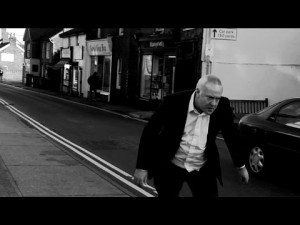You are warmly invited to attend the next in our series of PEP Talks, the seminar series for the Performance.Experience.Presence research group at Plymouth University.
Wednesday 4 May 2016 , 16.30 – 18.00pm, in the Jill Craigie Cinema, Roland Levinsky Building, Plymouth University
The papers will be presented by Phil Smith and Ruth Way. Abstracts and titles for both are below.
“A Walk in the Zombie Body”

In this paper, Phil will be talking about his latest work on zombies, performance and walking. He’s been trying to push beyond a walking ‘in relation to the zombie’ and think about how we can walk ‘in zombie’ and why we should. Along the way he’ll be looking at a new zombie movie from Argentina, weighing up thingness and travelling into outer space. It’s sci fi meets phenomenology. And he’ll be bringing some copies of his new book on the living dead, The Footbook of Zombie Walking for sale at the knock down price of £3 each.
“Developing experiential openness and reciprocity in Viridian (2014), a cross-generational community dance experience and practice as research screendance project”
As well as screening the cross-generational screendance, Viridian, this paper will discuss how the project applied Shin Somatics®, processes and principles to develop experiential openness between participants and a growing awareness of the capacity we have to empower each other. In the context of Shin Somatic practice, Ruth refers to this form of empowerment as a reciprocal empathic exchange between participants and as a process where we begin to understand more about ourselves through practising experiential openness and letting go of egocentric behaviours. This empathic exchange facilitates an understanding of the potential we have to learn from each other. The paper will examine how somatic movement processes facilitated our ability to flow into new modes of being and engage more deeply with our humanity. It features a multiplicity of voices, for the use of ‘we’ and ‘our’ aims to denote the collaborative and inter-subjective nature of the creative movement processes, which were shared and experienced together.
